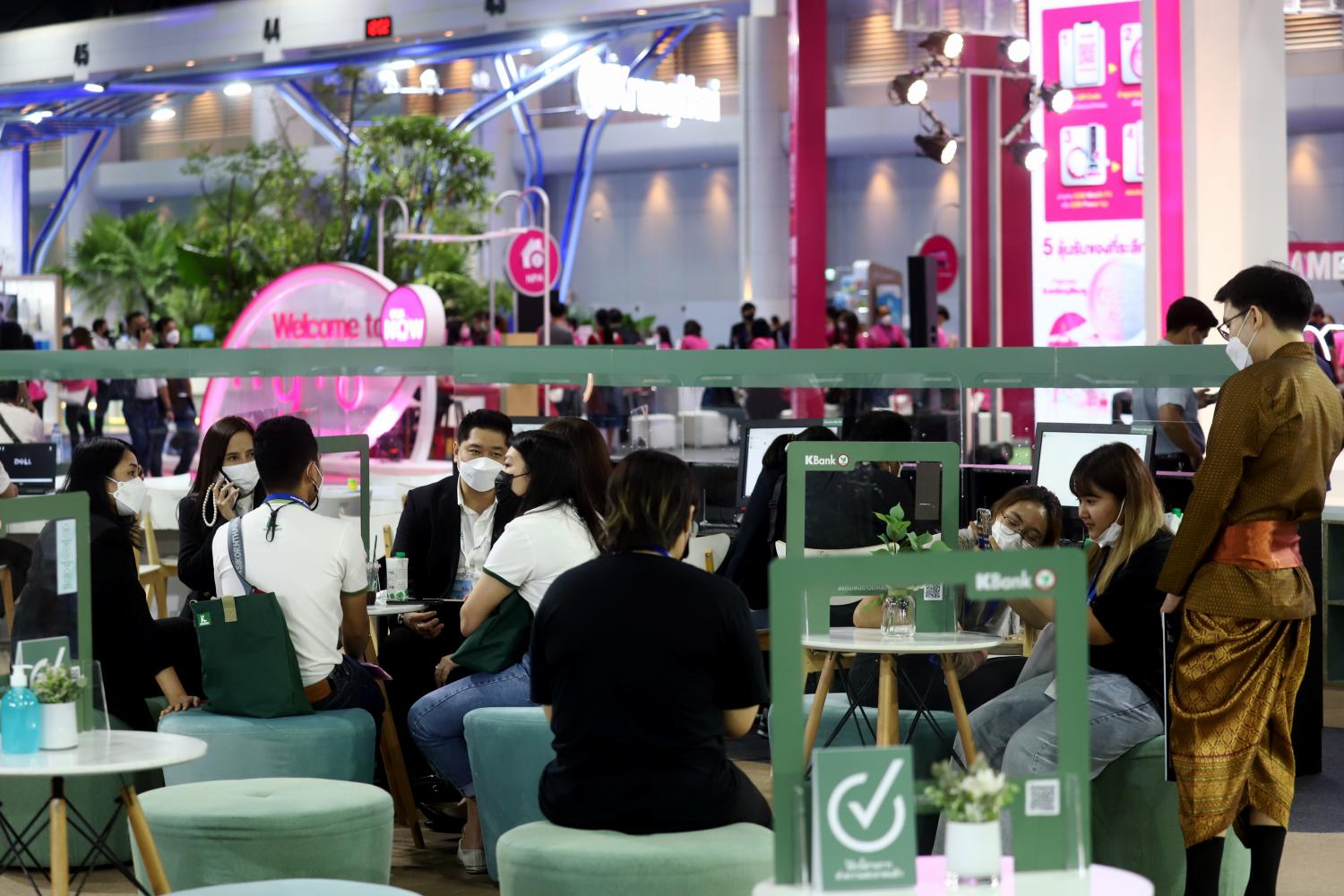
The commercial banking sector showed strong growth in the personal loan category during the first quarter this year because of greater household demand for liquidity to support daily spending needs amid the economic doldrums.
According to the Bank of Thailand (BoT), the commercial banking industry's personal loan growth in the first quarter stood at 6.6% year-on-year, the largest expansion among all loan products, although it was a decrease from the 7.8% growth recorded in the previous quarter, said Suwannee Jatsadasak, the central bank's senior director.
Personal loans continued to grow because households needed the cash for daily expenses, Ms Suwannee said.
Given the uneven economic recovery, individual borrowers with lower incomes needed higher liquidity for daily spending, she said.
The Thai banking sector's total lending expanded by 6.9% in the first quarter this year, rising from 6.5% in the previous quarter.
The overall loan growth rate is quite high within the region, compared with 6.3% in Indonesia, 5.7% in the Philippines, 4.7% in Malaysia and 2.8% in Singapore, said the BoT.
Ms Suwannee said total lending expansion in the local banking sector mainly came from corporate loan growth of 8.8%, edging up from 7.9% in the previous quarter.
Large corporate loans expanded in almost all business sectors, reflecting the financing needs of businesses in line with an improving economic recovery.
Small and medium-sized enterprise (SME) loans grew 1.3%, mainly based on the credit rehabilitation scheme, according to the central bank. As of May 9, loan approvals under the central bank's recovery lending scheme stood at 171 billion baht, which were largely granted to SMEs. However, excluding rehabilitation credit, SME loans contracted 1%.
Consumer loans grew by 3.3%, a slower pace from the previous quarter (4%), as the spread of the Covid-19 Omicron variant affected consumer confidence. Mortgage loan growth was 3.4%, slowing down in line with the decline in housing demand.
Auto loans remained stable with a 0.1% growth rate, while growth in domestic car sales became more evident. Credit card loans expanded by 2.3% in tandem with increasing credit card usage, said the central bank.
Banks' overall loan quality in the first quarter of 2022 remained stable from the previous quarter, primarily because of debt restructuring and financial assistance measures.
Gross non-performing loans (NPL) increased marginally to 532 billion baht, equivalent to an NPL ratio of 2.93%.
Meanwhile, the ratio of loans with a significant increase in credit risk to total loans stood at 6.09%, falling from 6.39% in the previous quarter, Ms Suwannee said.
The banking sector's overall loan-loss provisions in the first quarter this year were 41 billion baht, declining from 51 billion in the previous quarter.







